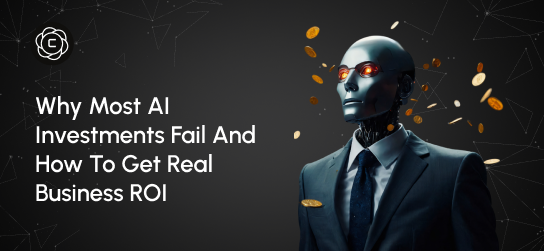LearningCenter
Master AI creativity with our comprehensive guides, tutorials, and expert insights. From beginner basics to advanced techniques.
Google’s Vision: The Future of Search, AI Agents & Chrome – Insights from Sundar Pichai
Introduction
Search isn’t about links anymore, it’s about answers, context, and action. It’s becoming a conversation, powered by AI, shaped by context, and increasingly visual, interactive, and personal.
In a recent episode of the Decoder podcast, Google CEO Sundar Pichai laid out exactly where search is heading. From AI Mode to intelligent agents and the rise of ambient computing, the landscape is shifting fast.
If you're a creator, entrepreneur, or strategist, here's what you need to know (and how to prepare).
1. AI Mode: Search, But Smarter
Pichai calls it a "fundamental shift", search powered by Gemini 2.5 at the core.
What does that actually mean?
Forget ten blue links.
Now you get:
-
Answers you can interact with
-
Follow-up questions, without rephrasing
-
Instant charts, summaries, and actions, all in one place
And this isn’t a beta test. It’s already rolling out. Search isn’t just something you do. It’s becoming something that does things for you.
2. The Rise of Agents and the Agent‑First Web
Here’s the big unlock: we’re moving from “page-based” to “agent-powered.”
Pichai explained that intelligent agents won’t just surface content, they’ll start taking action for you:
-
Dig through data
-
Follow up automatically
-
Make decisions within guardrails
Think of it like this:
In the past, you searched for a restaurant.
Now, your agent books it, gets directions, and recommends what to eat based on your habits.
This is the “agent-first” web, and it’s coming fast.
3. Will AI Kill the Open Web?
Short answer: Google says no.
Yes, AI changes how content is presented. But that doesn’t mean content stops mattering.
-
Web pages are still growing, up 45% in two years
-
AI Overviews drive traffic, not siphon it
-
Rankings remain transparent and traceable
Creators still win, if they’re intentional.
The format is evolving, but the value of trusted, useful content hasn’t changed.
4. Beyond Search: Chrome, Hardware, and Physical AI
Even under antitrust heat, Pichai stands firm on Chrome’s role as both open-source and security-first.
But the bigger play?
Google’s moving AI off the screen and into your surroundings:
-
AR glasses
-
Android XR
-
On-device agent frameworks
It’s not just search that’s changing, it’s how we experience the web in real life.
5. How to Stay Ahead (with AI + Crompt)
This shift isn’t theoretical, it’s tactical.
Here’s how I’m preparing using the Crompt AI Stack:
-
Crompt AI Content Writer → Draft analysis on where AI and search are going
-
Crompt AI SEO Optimizer → Tailor that content to rank in both traditional and AI-enhanced search
-
Crompt AI Improve Text → Tighten clarity and tone so your message lands with authority
Use AI to research the trend.
Use Crompt to refine and publish with confidence.
Also available on iOS and Android.
Final Take
Google isn’t tweaking its platform, it’s rebuilding it.
-
AI Mode is rewriting how we search, turning questions into conversations, not just results.
-
Smart agents are turning the web from something you browse into something that works for you.
-
AI and AR are blurring the line between the digital and physical, seamlessly.
The opportunity?
It’s wide open, for those who adapt quickly.
Don’t just create content.
Create content that works with AI systems, not against them.
Use tools like Crompt to stay visible, valuable, and ahead of the curve.
The algorithm is changing, but the game is still yours to win.
Table of Content

Your Calendar Is Not Broken (Your Mental Operating System Is)
Last month, I watched a founder spend three hours reorganizing his calendar app for the fourth time this year. Different colors, new categories, smarter blocking strategies. By week two, he was back to the same chaotic pattern: overcommitted, constantly running late, and feeling like his day controlled him instead of the other way around. The problem wasn't his calendar. It was the mental operating system running underneath it. Calendar issues aren’t about tools; they’re about how you think about time. They download new apps, try productivity methods, and wonder why nothing sticks. Meanwhile, the real issue sits in how their brain processes time, priorities, and commitments.

How to Combine Human Thinking and Generative AI for Smarter Outcomes
Last Tuesday, I watched two product managers go head-to-head on the same challenge. Same tools. Same data. Same deadline. But the way they used AI couldn’t have been more different and the results made that difference unmistakable. One delivered a generic solution, familiar and easily replicated. The other crafted a proposal that felt thoughtful, grounded, and strategically distinct. Their CEO approved it for implementation within minutes. The gap wasn’t technical skill or AI proficiency. It was their thinking architecture, the way they framed the problem, used AI to explore, and layered in human context to guide the output.

Why Better Generative AI Starts With Better Thinking (Not More Tools)
Four months ago, I watched a marketing director spend $400 on AI subscriptions only to produce the same mediocre content she'd always created. Her problem wasn't the tools. It was her approach. This scenario plays out everywhere. Professionals accumulate AI subscriptions like digital trophies, believing more tools equal better results. They're missing the fundamental truth: generative AI amplifies your thinking, not replaces it. The best AI users I know don't have the most tools. They have the clearest thinking processes.
Stay Updated
Get the latest AI insights, tutorials, and feature updates delivered to your inbox.






